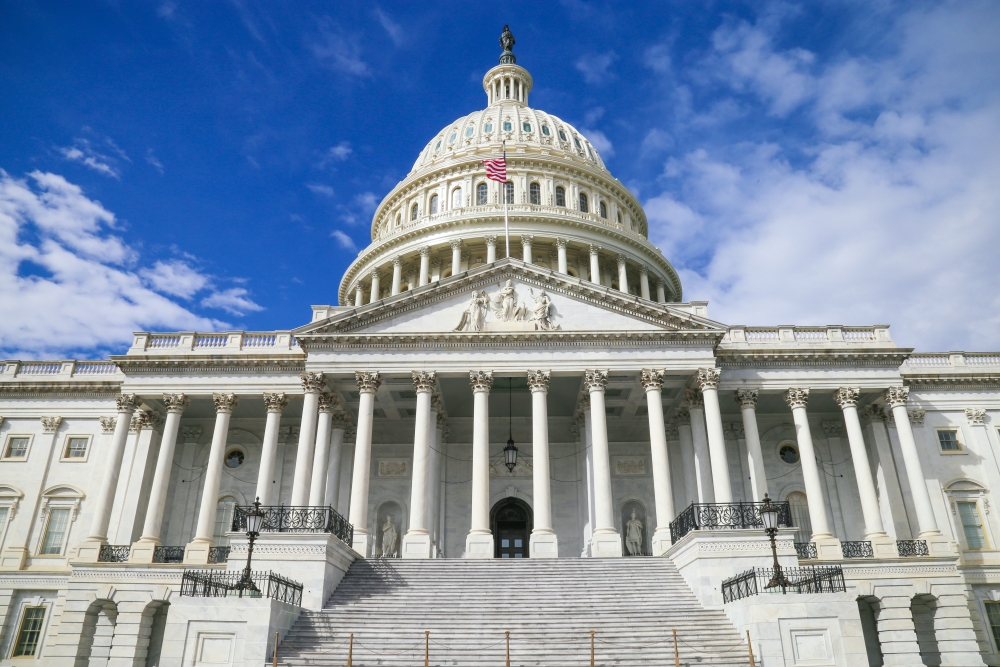
- Details
- By Jenna Kunze
WASHINGTON — The House of Representatives today passed a bill reauthorizing a lapsed Violence Against Women Act with new provisions speicifcally addressing Native American victims. The legislation will now be sent to the Senate for consideration.
The bill—reintroduced March 8 by Texas’ Democratic Rep. Sheila Jackson Lee and co-sponsored by 182 lawmakers, including two republicans—came with strong support from the Office of Management and Budget (OBM), the federal agency responsible for supervising the Executive Branch of the U.S. government.
“The Violence Against Women Act (VAWA) is a landmark piece of bipartisan legislation that was first enacted in 1994 and that was reauthorized in 2000, 2005, and 2013,” the statement from the White House read. The act allocates resources to states and tribes to help prevent and improve response to domestic violence, dating violence, sexual assault and stalking.
“Strengthening and renewing VAWA, however, is long overdue. As many as 1 in 3 women are subjected to domestic violence, dating violence, sexual assault, and stalking at some point in their lives, and the rate is even higher for women of color, lesbian and bisexual women, and transgender people. VAWA reauthorization is more urgent now than ever, especially when the pandemic and economic crisis have only further increased the risks of abuse and the barriers to safety for women in the United States.”
Statistics show Native women bear the brunt of sexual violence compared to their non-Native counterparts. American Indians and Alaska Natives are 2.5 times more likely to experience violent crimes—and at least 2 times more likely to experience rape or sexual assault crimes—compared to all other races, according to Congress’s findings in the bill.
Investigation into cases of missing and murdered Native women is further complicated by lack of training and equipment, interagency cooperation, and laws. Title 9 within the bill—specifically addressing “Safety for Indian Women”—aims to improve the issues by authorizing funding for training and equipment, allowing tribal governments access to federal criminal investigation databases, and creating a pilot project to allow “up to five Indian Tribes in Alaska to implement special Tribal criminal jurisdiction.”
Additionally, the Act requires the Attorney General and the Secretary of the Interior compile annual reporting with stats on Missing and Murdered Indigenous Women and Girls (MMIW), and recommendations on improving data collection.
The bill authorizes $7 million to be appropriated annually for fiscal years 2022 through 2026. Money will pay for tribal training, technical assistance, data collection, and evaluation of criminal justice systems of participating Tribes.
Additionally, it appropriates $3 million annually through the same period for tribal governments to access and use federal criminal information databases.
In President Joe Biden and Vice President Kamala Harris’s Plan for Tribal Nations, the leaders ensured they would “increase safety on tribal lands and tackle the crisis of violence against Native women, children, and the elderly.”
The administration reiterated its commitment to that promise in OBM’s letter to the House supporting VAWA.
“This bill would build on the effectiveness of special criminal jurisdiction for domestic violence cases that was included in prior VAWA reauthorization laws and address other significant co-occurring crimes. It recognizes tribal jurisdiction that will allow participating Tribes to hold accountable non-native perpetrators of sexual violence, sex trafficking, domestic violence against child victims, stalking, elder abuse, and assault against law enforcement officers when they commit such crimes on tribal territory,” it said.
Newly sworn in Interior secretary and longtime champion of the MMIW crisis, Sec. Deb Haaland was among the first lawmakers to co-sponsor the bill while she was serving as a representative for New Mexico. She tweeted her support March 13.
“Everyone deserves to feel safe & have access to justice when they experience violence,” she wrote. “We need a full & enhanced #VAWA to provide more permanent protections for all survivors. That’s why I’m a cosponsor.”
According to a fact sheet from the House Judiciary Committee, the bill would improve and expand aid and services for victims and survivors. The legislation would also protect survivors from termination as a result of experiencing violence, being involved in a case, or seeking workplace accommodations.
Co-Chair of the National Congress of American Indians’ Task Force on Violence Against Women, Juana Majel Dixon, said the group appreciated the House prioritizing the bill.
“This is about our right, as governments, to protect our citizens from violence,” she said in a statement. “It is about the countless victims who have experienced life-changing trauma simply because federal law has tied our hands from protecting them. We cannot allow this to continue.”
More Stories Like This
Native News Weekly (August 25, 2024): D.C. BriefsUS Presidents in Their Own Words Concerning American Indians
Montana County Redraws District After Settlement to Ensure Chippewa Cree Votes Count
Tunica-Biloxi Council Member Named to Tribal Leadership Foundation
Ethics Complaint Alleges Former Navajo Nation Chief of Staff Accepted Gifts From Contractor
Help us defend tribal sovereignty.
At Native News Online, our mission is rooted in telling the stories that strengthen sovereignty and uplift Indigenous voices — not just at year’s end, but every single day.
Because of your generosity last year, we were able to keep our reporters on the ground in tribal communities, at national gatherings and in the halls of Congress — covering the issues that matter most to Indian Country: sovereignty, culture, education, health and economic opportunity.
That support sustained us through a tough year in 2025. Now, as we look to the year ahead, we need your help right now to ensure warrior journalism remains strong — reporting that defends tribal sovereignty, amplifies Native truth, and holds power accountable.
 The stakes couldn't be higher. Your support keeps Native voices heard, Native stories told and Native sovereignty defended.
The stakes couldn't be higher. Your support keeps Native voices heard, Native stories told and Native sovereignty defended.
Stand with Warrior Journalism today.
Levi Rickert (Potawatomi), Editor & Publisher

